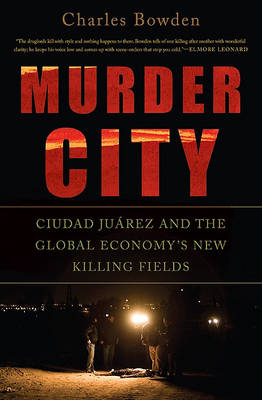Razed, spoiled, polluted, corrupted, exploited, more bloody than our bloodiest war zone, this is not our past, argues Bowden. This is not our failure. This is our success. This is our progress. We have triumphed. We are complicit. We are on the bold march.
After decades of this thing called development, Juárez has in sheer numbers more poor people than ever, has in real purchasing power lower wages than ever, has more pollution than ever, and more untreated sewage and less water than ever. Every claim of a gain is overwhelmed by a tidal wave of failure. And yet this failure, I have come to realize, is not failure. The gangs are not failure. The corrupt police are not failure. The drugs, ever cheaper and more potent and more widespread, are not failure. The media is increasingly tame here, just as it is in that place that once proudly called itself the first world, a place now where wars go on with barely a mention and the dead are counted but not photographed.
All the other things happening in the world— the shattering of currencies, the depletion of resources, the skyrocketing costs of food, energy, and materials— are old hat here. Years ago, hope moved beyond reach, and so a new life was fashioned and now it crowds out all other notions of life.
Juárez is not behind the times. It is the sharp edge slashing into a time called the future.
There’s one line Ed Abbey keeps going to repeatedly, trying to drive home the fate of the west’s unchecked “progress,” the west’s ravaged resources, the west’s corrupt infrastructure that largely exploits. What’s the future? he asks, and he points to the precedent: “Ask any Indian. Ask any Appalachian.”
Except now we have been trumped. We have been passed. Here’s Juárez as the beacon, a couple of decades— if we’re so lucky— down the same road.
Look at what people do to survive. Measure their words, and you will find that in Juárez, as in every other place in the world, some people are truthful and some are liars. But don’t ask who is innocent and who is dirty, because everyone here tries to eat and drink and we have no pure food or water.
We are the future. We watch governments erode and bluster. We watch cops strut and steal. We watch dealers operate in broad daylight. We work hard and get little.
And we survive.
And don’t ask how.
